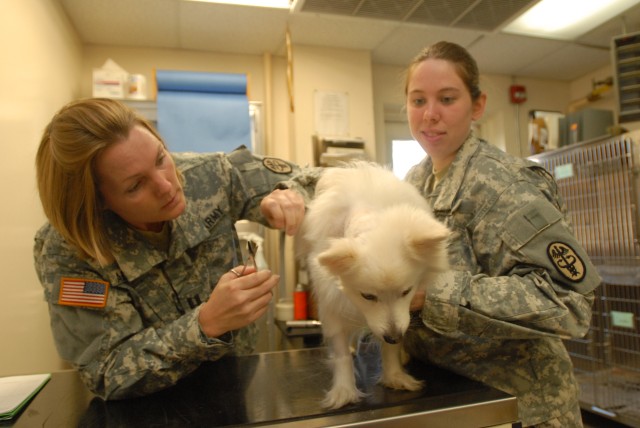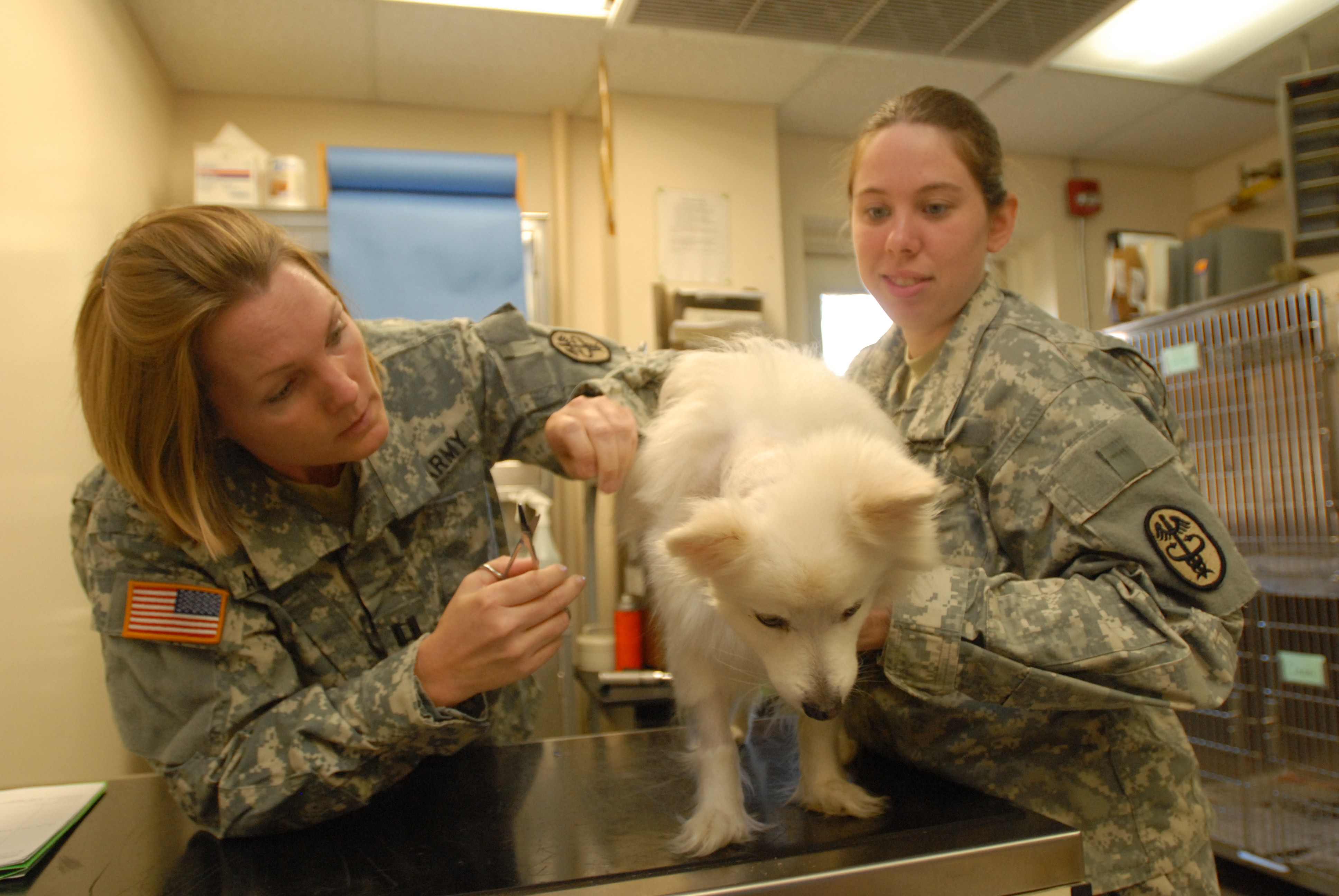When SFC(R) Bobby Terry brought Schatzi, his 8-year-old American Eskimo dog, to the Fort Benning Veterinary Treatment Facility with life-threatening injuries, Terry wasn't sure his best friend would survive. But, after quick action by veterinary facility staff, Schatzi was stitched up and ready to go home two days later.
"They saved my dog's life," Terry said. "That dog's all I have. (The staff) were outstanding."
For the staff, it was all in a day's work.
"They give 100 percent of themselves to the community and to the pets whenever someone walks in the door," said CPT Melissa Adkison, a veterinarian. "The staff is always there for the Soldiers, civilians and pets."
To ensure Fort Benning's pets stay healthy, the veterinary facility provides a variety of preventive services, including parasite screenings, blood tests, vaccination and microchiping, as well as X-rays. Surgical services, such as spaying, neutering and declawing are also available.
The facility schedules 10 surgeries each week, but for complex surgeries, such as those requiring metal pins or plates, and for animals that need to be monitored 24 hours a day, staff refer pet owners to off-post clinics that are better equipped to meet the animal's needs, said CPT Jake Barnoski, OIC of the Fort Benning section of the Gulf Coast District Veterinary Command.
"We can't keep a sick patient here 24 hours a day because we don't have the staff to stay here and monitor the animal properly," Barnoski said. "But if someone brings us an animal we can't keep here, we will do as much as we can to get the animal as much service as we can before we refer them off-post."
One of the biggest advantages of using the Fort Benning facility's services is cost, Barnoski said.
"We're easy on the pocketbook," he said. "If we run blood work and X-rays here, you're probably going to leave spending around $100, whereas if you do that on the outside, you're going to be in the $300 to $400 range. If you show up to a vet off-post with blood work and X-rays we did here, then they can just treat the animal and you'll save money."
For Barnoski, treating the Fort Benning community's pets is a way of supporting deployed Soldiers and their families.
"We make sure people's pets are as healthy as they can be, so they have one less thing to worry about, and when Soldiers come home, they don't have to find out Fluffy got sick," he said. "They check on their pets during deployments. We want to make sure that when (family members) get that call, they can say the dog's doing fine."
While the facility is the primary care provider for many Fort Benning pet owners, its first mission is caring for military working dogs.
"Our job is to maintain these dogs at the highest level of fitness and health we can," he said. "We'll do anything necessary for them. If a military working dog needs hospitalization, my staff and I are here around-the-clock because that's our duty. They're our Soldiers, so we have to take care of them that way."
To keep Fort Benning's canine Soldiers in top physical condition, vet facility staff perform semi-annual checkups complete with blood tests, vaccination and dental examinations - which, in turn, can save human lives, Barnoski said.
"If a dog can find one IED before it takes out part of a convoy, who knows how many lives that could save'" he said.
While veterinary facility staff are non-deployable, they are occasionally tasked to go overseas, Barnoski said.
"When we deploy, we do the same job there as we do here," he said. "If a dog gets hit by an IED, we're there to stitch it up."
"Dogs give everything of themselves, and when they perform a special service like that it's even more rewarding to work with them," Adkison said.
The Fort Benning Veterinary Treatment Facility is located on 10th Mountain Division, and is open from 8 a.m. to 4 p.m. Monday through Friday. To make an appointment or for more information, call 706-545-4444.


Social Sharing